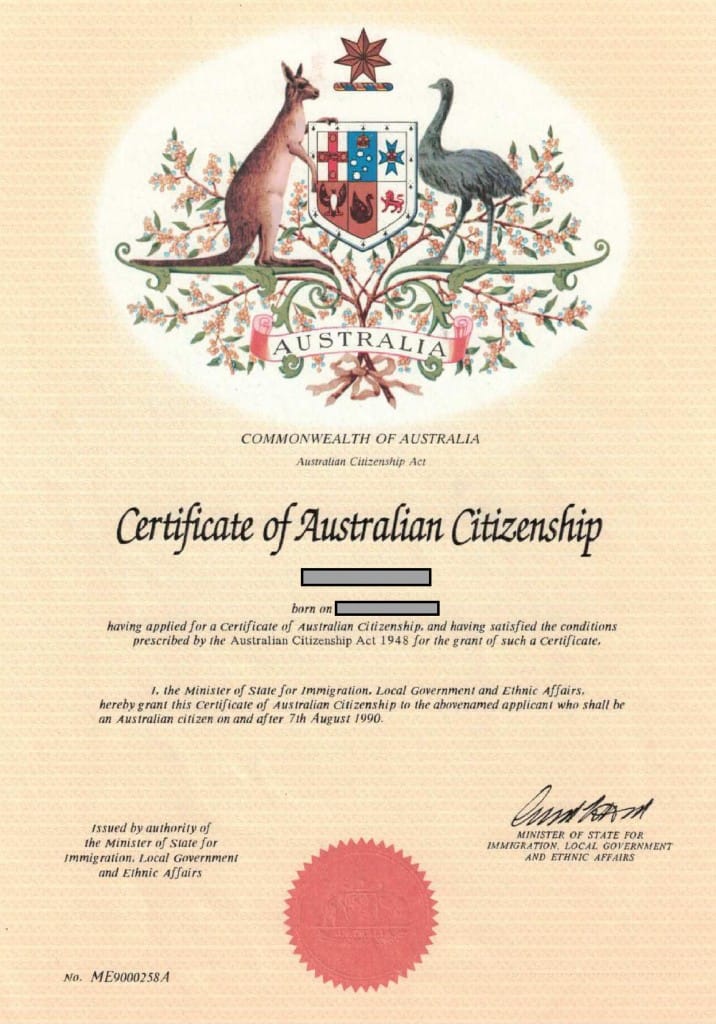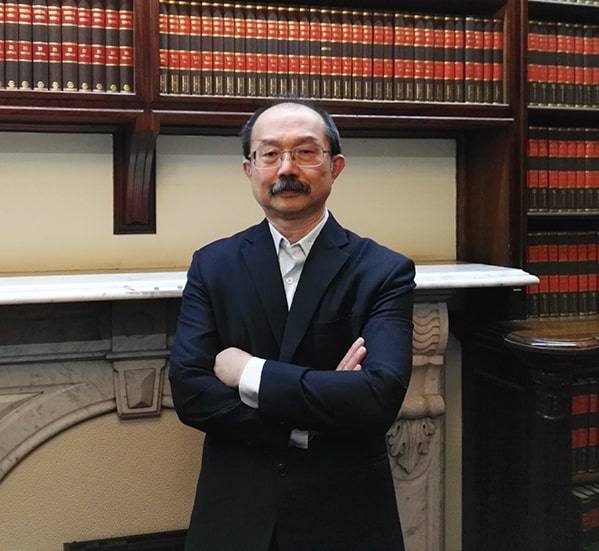
Australian Citizenship Residence Requirement: How many days to do you have to live in Australia to apply?
Is there an Australian Citizenship residence requirement? Generally, the Department of Immigration (Department of Home Affairs) can refuse your application for Australian citizenship if you spent too much time in another country.
In the case of Arsenova v Minister for Immigration and Border Protection (Citizenship) [2018] AATA 4382 (23 November 2018), an application for Australian Citizenship was refused because the Department of Immigration was not satisfied that the applicant would likely to reside or would continue to reside in Australia (click here to read the full case).
Time spent residing in Australia
Arsenova first came to Australia in February 2010. She resided in Australia for a total of 496 days and was away from the country for 965 days.
In addition, in the 12 months before Arsenova lodged her Australian citizenship application, she only resided in Australia for a total of 27 days.
Australia residence requirements
Arsenova faced 2 issues:
- in applying for Australian citizenship, does she satisfy the Australia residence requirements?; and
- in granting her Australian citizenship, would she likely to reside or continue to reside or maintain a close and continuing association with Australia?
Number of days allowed for absence in Australia
Arsenova has been away from Australia for more than 12 months in the 4 years before she applied for her Australian citizenship and more than 90 days in the 12 months immediately before the date of her application.
The AAT concluded that Arsenova did not satisfy the general residence requirements as defined in section 5 of the Australian Citizenship Act 2007 (click here to learn more).

Required to live in Australia for a period of time
General Residence requirement
In order to satisfy the Australian Citizenship Residence requirement, you must:
- have lived on a valid visa for at least 36 months out of the last 4 years before applying. You can be away from Australia for not more than 12 months;
- hold a permanent resident visa and lived in Australia for at least 9 months out of the last 12 months before applying. You can be away for 3 months while you are holding a permanent resident visa.
There is an exception to the general residence requirement if you are accompanying your partner (spouse or de facto partner), and your partner is an Australian citizen at the time you applied for your Australian citizenship. The time you spent away from Australia is considered as if you are present in Australia. However, you must have a close and continuing association with Australia while you were away.
In some cases, you can ask the Minister to exercise discretion even if you do not meet the general residence requirement, click here to learn more.
What is close and continuing association with Australia?
In order to be exempted from the general residence requirement, you must demonstrate a close and continuing association with Australia. The following are some factors that may demonstrate close and continuing association with Australia:
- evidence of you having migrated to Australia;
- evidence of you having established a home in Australia;
- having Australian citizen children;
- in a long-term relationship with an Australian citizen partner
- having extended family in Australia;
- returning home in Australia regularly;
- having regular periods of residence in Australia;
- having an intention to reside in Australia;
- taking leave from work to accompany your Australian citizen partner to work or study overseas;
- own property in Australia;
- having paid income tax over the past 4 years;
- actively participate in Australian community based activities
Residing at least 1 year out of the last 4 years
The Department of Immigration in deciding whether you have a close and continuing association with Australia will put more weight on the above list of factors if you have been lawfully and physically present in Australia for at least 365 days in the last 4 years before applying for Australian citizenship. Less weight will be given to these factors if you are not in Australia for at least 1 year in the last 4 years.
In addition, you must also satisfy other requirements, for example, be of good character (click here to learn if you are a person of good character).
Department failure to re-issue RRV 155
In the case of Yoosof Ateyya and Minister for Immigration, Citizenship, Migrant Services and Multicultural Affairs (Citizenship) [2020] AATA 2440 (23 July 2020), Yoosof’s application was refused because for 55 working days he did not hold a PR. The reason was due to the Department taking 55 working days to grant him a RRV 155. Yoosof lodged his RRV application some 6 weeks before his last RRV expired. The AAT accepted that, even though under the Australian Citizenship Policy, a delay in processing an application does not constitute an administrative error in itself, a failure to make a decision within a reasonable time (AFX17 v Minister for Home Affairs [2020] FCA 807) is neither fair, nor just (at [46]) – is an administrative error.
However, the Tribunal affirmed the Department’s decision to refuse Yoosof’s application for Citizenship by conferral because he was not present in Australia as a PR for the period of 12 months immediately before the day he made the application (s 22(1)(c)). And it did not waive the general residency requirements under ss 22A, 22B and 23 because Yoosof was not engaged in “specified” activities as defined in IMMI 13/056.
To engage the waiver, Yoosof needs to show:
- section 22A – was an ordinarily resident in Australia for at least 180 days in the 2 years and 90 days in the 12 months immediately before making the application in the preceding 2 years
- section 22B – was an ordinarily resident in Australia for at least 480 days in the 4 years and 120 days in the 12 months immediately before making the application in the preceding 4 years
While the Tribunal accepted that the Department’s delay in processing his RRV 155 application was an administrative error and would remit the matter back to the Department for reconsideration which will enliven s 22(9). But the Minister (under s 24(5)) would not be satisfied that Yoosof will satisfy the special residence requirements under s 22A or 22B as he was not present in Australia.
To know how to obtain evidence of Australian citizenship, click here. Click here to learn whether you have to sit for the citizenship test or to find out whether you need to satisfy the identity requirement, click here.
A child abandoned in Australia could also acquire Australian citizenship, click here to find out how.
Australian citizenship law is complex and difficult to understand, contact our immigration lawyer for a consultation (fee applies) to help under Australian Citizenship application processes. You may also refer to our FAQs for answers regarding visa application or visa cancellation by clicking here.


041 222 4020 or WeChat: AUDvisa
This article is not intended to be or taken as migration legal advice. The author of this article disclaims any liability for any action or omission on the information provided or not provided in this article. You should always consult an immigration lawyer or a registered migration agent to form an informed opinion on your immigration matter.



